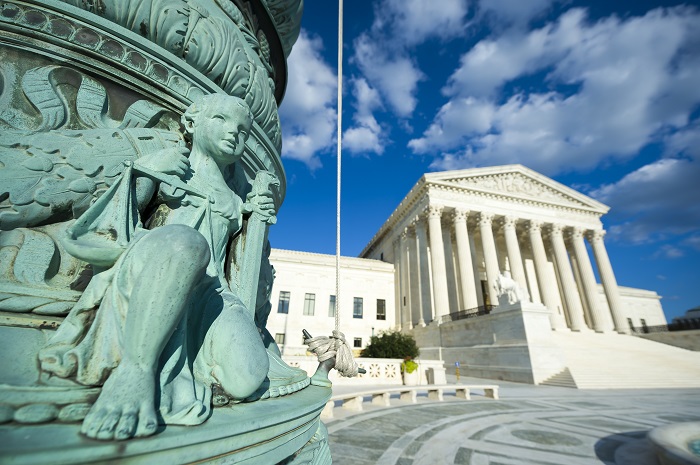Effective Jan. 15, 2020, the Consumer Financial Protection Bureau increased the maximum civil monetary penalty it can impose within its jurisdiction. The increases are required by federal law, which requires agencies to adjust for inflation each civil monetary penalty within an agency’s jurisdiction by Jan. 15.
Posts published in “Compliance Management”
It has been an extraordinary 365 days for consumer financial services law. I cannot recall a year where so many states introduced legislation or proposed regulations or rules impacting the credit industry. At the federal level, proposed rules for the Fair Debt Collection Practices Act were (finally) released and California also proposed regulations under the California Consumer Privacy Act.
The year 2020 offers to be an interesting one for bankruptcy litigation. With several issues before the Supreme Court, at least one will have a material effect on financial services. In addition, higher credit costs will spur an increase in the number of bankruptcy filings, both on the consumer and commercial side. With the California Consumer Privacy Act taking effect on Jan. 1, it will not be long before we see issues arising from it percolating into bankruptcy cases.
The European Union’s General Data Protection Regulation (GDPR) went into effect on May 25, 2018, and introduced privacy concepts that were new to some U.S. businesses. Fortunately, the GDPR was developed over a period of time that allowed for thoughtful deliberation and careful drafting. The California Consumer Privacy Act (CCPA), on the other hand, was speedily enacted under the threat of a ballot initiative.
There is no discovery rule for federal Fair Debt Collection Practices Act claims, the U.S. Supreme Court held today. Affirming the U.S. Court of Appeals for the Third Circuit's decision in Rotkiske v. Klemm, today’s opinion also overrules an earlier ruling from the U.S. Court of Appeals for the Ninth Circuit, Mangum v. Action Collection Serv., Inc. There, the Ninth Circuit permitted FDCPA claims to run from when the plaintiff knows or has reason to know of the violation.
The federal banking regulators and the CFPB recently issued an “Interagency Statement on the Use of Alternative Data in Credit Underwriting,” stating in sum that the agencies “encourage responsible use” of alternative data, especially in the context of credit underwriting.
The Office of the Comptroller of the Currency (OCC) and the Federal Deposit Insurance Corporation (FDIC) both recently issued proposed rules to “fix” the potential problems arising from the ruling in Madden v. Midland Funding, LLC, 786 F.3d 246 (2nd Cir. 2015), which called into question the “valid when made” doctrine. In addition, the FDIC’s proposal would make clear that the permissible interest on a loan would be determined at the time the loan is made, regardless of subsequent events such as changes in state law or the sale or assignment of the loan. The OCC’s Notice of Proposed Rulemaking is available…
Nevada has enacted a new law entitled the “Consumer Protection from the Accrual of Predatory Interest After Default Act,” which relates to consumer form contracts used in connection with retail installment transactions and the prejudgment and postjudgment interest and attorney fees that may be awarded by a court. Signed into law on June 3 and applicable only to contracts entered into on or after Oct. 1, the Act adds a new chapter to Title 8 of the Nevada Revised Statutes, “Commercial Instruments and Transactions.” The Act does not apply to a number of entities, including (but not limited to): banks;…
Three new laws signed by California Gov. Gavin Newsom in recent days will impact consumer credit in the state by capping interest rates on payday and other consumer installment loans, giving automatic exemptions for bank account levies and removing exemptions for attorneys and mortgage loans from the Rosenthal Act. California Financing Law Expanded AB 539 amends the California Financing Law, which licenses and regulates finance lenders and brokers, by imposing new restrictions on loans of $2,500 or more but less than $10,000. It also adds a rate cap on those loans so that the annual simple interest rate may not…
Lavallee v. Med-1 Solutions, LLC from the U.S. Court of Appeals for the Seventh Circuit examines whether an email from a debt collector was an “initial communication” and if it was, whether a clickable hyperlink serves as a proper means of providing the validation notice mandated by section 1692g(a) of the federal Fair Debt Collection Practices Act. These disclosures, sometimes called the “validation notice,” can be contained in what the FDCPA refers to as the “initial communication” or provided “in writing” within five days of the initial communication. While the debt collector was found to have violated the FDCPA, the decision…
The Consumer Financial Protection Bureau has announced it will allow more time for comments on its Notice of Proposed Rulemaking to implement the Fair Debt Collection Practices Act. The CFPB has extended the comment period by 30 days to Sept. 18. Years in the making, if adopted the proposed rules would bring significant changes to the form and manner of consumer debt collection subject to the FDCPA. According to the CFPB, its proposal “would set clear, bright-line limits on the number of calls debt collectors may place to reach consumers on a weekly basis; apply prohibitions on harassment or abuse, false…












